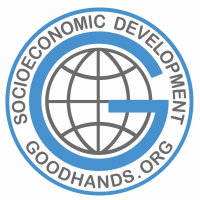Knowledge: Open Access to Essential Information

Expanding Access to Practical Knowledge
The GoodHands Knowledge Archive is a public digital resource for everyday learners. Unlike structured programs designed for underserved communities, this archive supports individuals who can navigate online platforms independently. It offers practical, easy-to-understand guidance on essential life topics—free of charge and accessible to all. Whether you're a community leader, student, professional, or simply seeking direction, this archive provides reliable support for self-directed learning across many real-life areas.
Four Core Areas, One Central Hub
The Knowledge Archive is built around four key pillars: career development, digital literacy, health and well-being, and social support. Each section includes subtopics that provide fast, focused answers to real-life questions. Visitors won’t find academic articles, but rather clear explanations, helpful tips, and actionable advice. The goal is to support everyday decisions, personal safety, communication, and self-growth through accessible content that reflects the needs of people in diverse life situations.
Practical Help, Not Information Overload
What makes this archive unique is its simplicity and usability. All texts are written in plain, friendly language with a strong focus on real-life application. There are no complicated theories or long reading paths—just clear, structured content you can use right away. Every page offers accessible guidance in a format that helps visitors reflect, act, and grow without feeling overwhelmed. The archive focuses on relevance and clarity, so people can find exactly what they need without unnecessary complexity.
Continuously Growing, User-Focused
GoodHands updates the archive regularly to keep it fresh, useful, and aligned with real-world needs. New topics are added based on community feedback and current challenges. Older formats are reworked into more readable versions. Every text is created with care and a strong focus on clarity, structure, and accessibility. This is not a static library—it’s a dynamic resource that adapts to changing realities. As users evolve, so does the archive, offering knowledge that grows with the people it serves.

